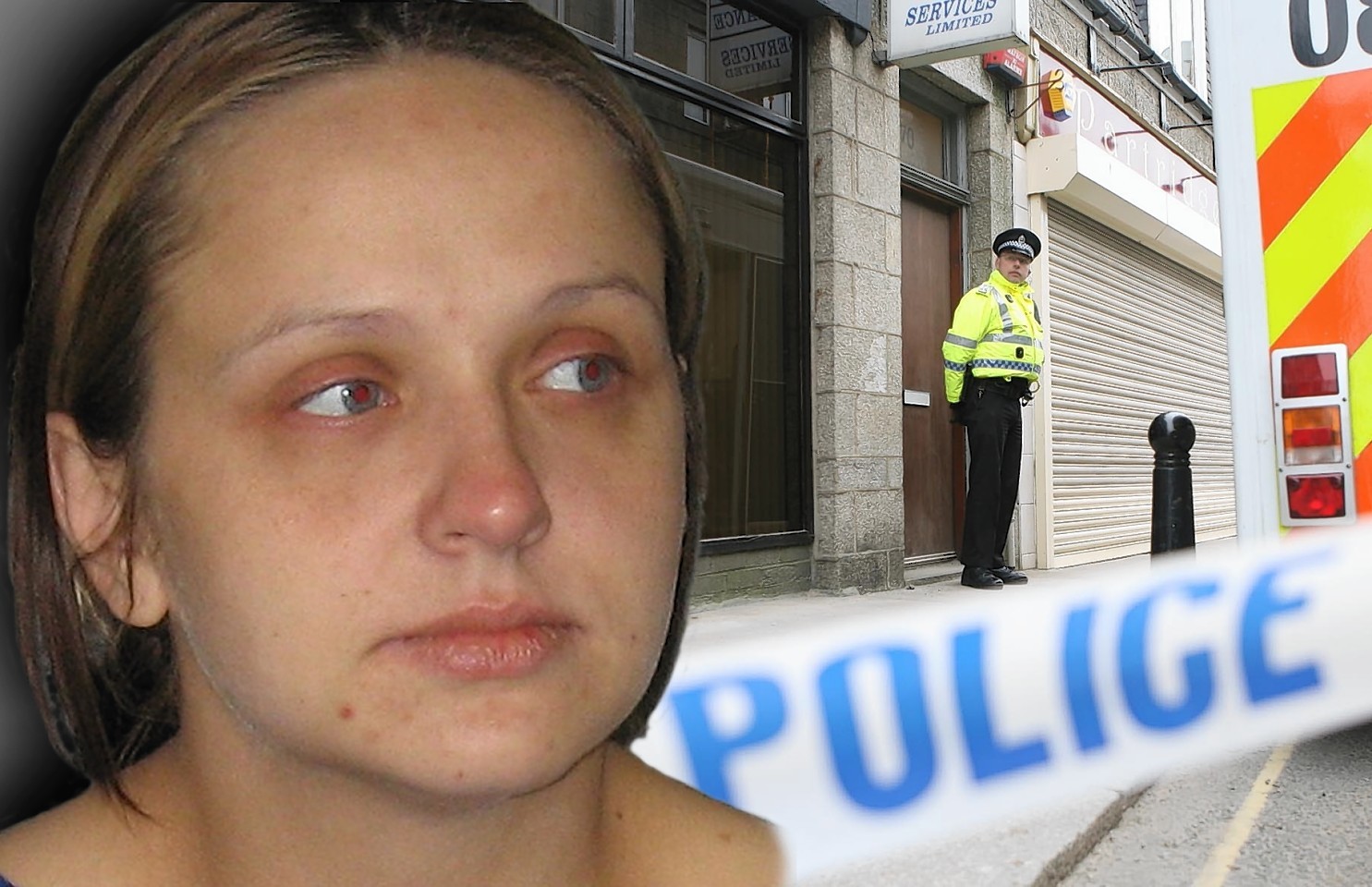An abused and traumatised mother whose conviction for murdering her newborn child with clingfilm was overturned by appeal judges today admitted killing the hours-old baby boy.
Ineta Dzinguviene was jailed for life and ordered to serve at least 15 years in jail in 2011 after smothering her son, who was later named Paulius Dzingus, the previous year.
Dzinguviene, 38, had already killed another baby girl in 2009 in her native Lithuania before moving to Scotland with her husband and three children.
She was extradited to her homeland and sentenced to another 15 year prison term for the murder of the girl Paulina before being returned to Scotland to serve her life sentence.
But the Scottish Criminal Cases Review Commission, which investigates potential miscarriages of justice, referred the case to the Court of Criminal Appeal in Edinburgh.
The appeal judges quashed her conviction for murder but granted authority to the Crown to bring a fresh prosecution.
Killer faces deportation to Lithuania
The Crown today accepted her guilty plea to a lesser offence of culpable homicide by killing the child after holding a piece of clingfilm over his mouth or nose and asphyxiating him on the day her son was born on April 12 in 2010 at a flat in High Street, Fraserburgh.
Unlike murder, the crime of culpable homicide does not carry a mandatory life sentence of imprisonment.
A judge deferred sentence on the killer until next month for the preparation of a background report and Dzinguviene faces being deported to her homeland to serve her 15-year jail term for murdering her three-day-old daughter, Paulina, there on completion of her sentence in Scotland.
Advocate depute Alex Prentice KC told the High Court in Edinburgh: “Both babies were healthy at birth. The cause of death of each child was asphyxiation.
Mum has been diagnosed with ‘battered woman syndrome’
“Paulius through the use of clingfilm applied to the nose and mouth and Paulina by way of a plastic bag. Both bodies were subsequently concealed in suitcases or travel bags.” said the prosecutor.
Mr Prentice said Dzinguviene’s appeal against her murder conviction in Scotland was based on fresh evidence of her state of mind at the time of the killing of Paulius, which had emerged following psychotherapy work with her in prison.
He said: “On March 23 this year the Appeal Court set aside her conviction on the basis that diminished responsibility may have been present and authorised a re-trial. The accused has now admitted killing her child, although she has no memory of what happened.”
“The Crown accepts the guilty plea to culpable homicide on the basis of diminished responsibility,” he told the court.
The court that the mother has now been diagnosed with post-traumatic stress disorder, complex post-traumatic stress disorder and ‘Battered woman syndrome’.
The judge, Lady Poole, told the killer that it was “a serious and tragic” case and that she would remain in custody ahead of sentencing next month.
